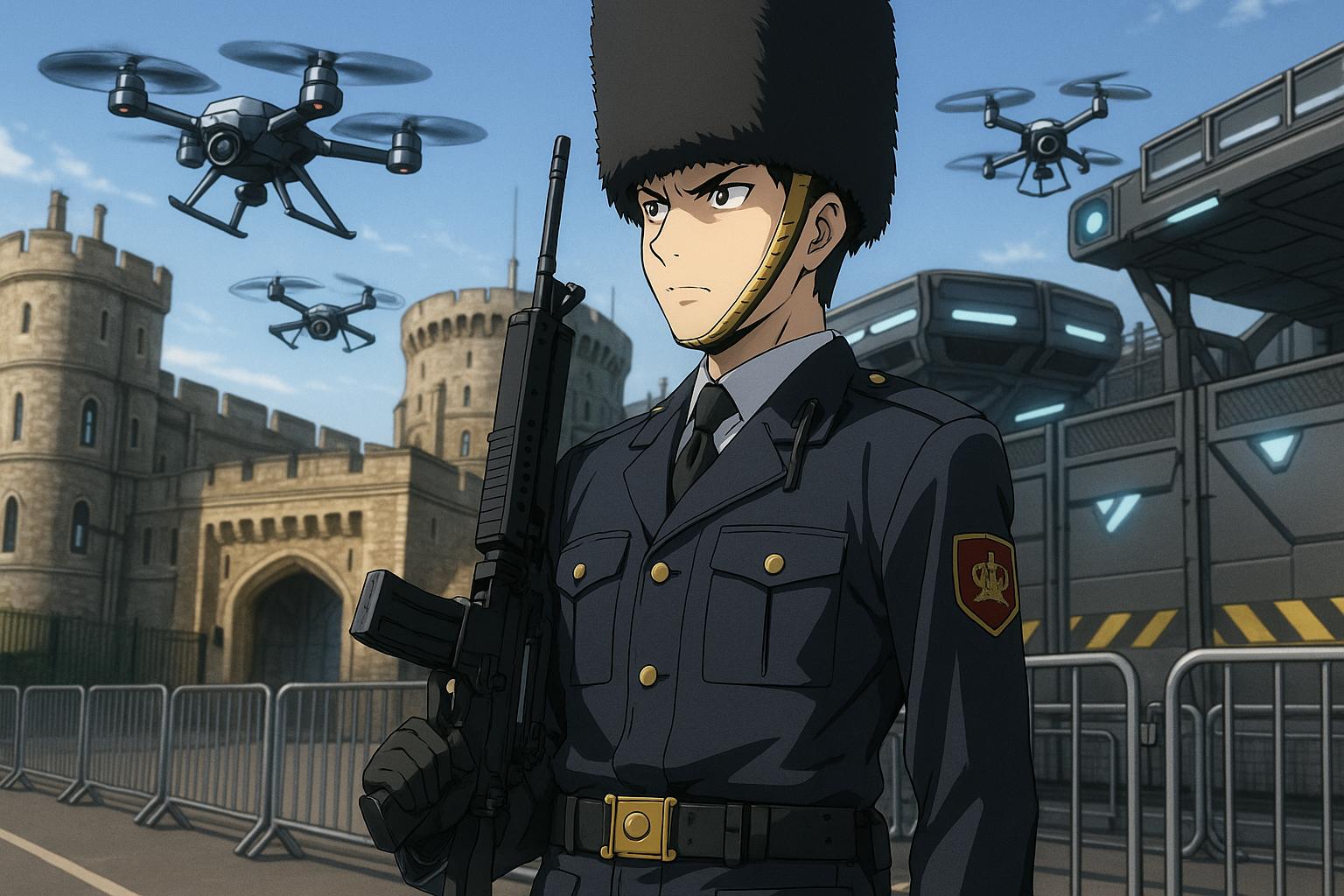Authorities have prevented a suspected terror attack on soldiers protecting King Charles at Victoria Barracks, leading to tightened security measures and the deployment of advanced facial recognition technology as the nation remains on high alert.
A significant security scare has arisen following the foiling of a suspected terror plot aimed at soldiers protecting King Charles. On Friday, a man was arrested at the Victoria Barracks, near Windsor Castle, for unrelated offences. While in custody, police unearthed his alleged intentions to carry out an attack, prompting the implementation of more stringent security measures at the barracks, where military personnel were advised to remain on-site and avoid wearing uniforms in public. A source disclosed to The Sun that the authorities acted swiftly, stating, "It was a huge security scare. But it was in the interests of everyone’s safety."
This recent incident adds to a series of heightened security concerns surrounding royal events. In past months, Windsor Castle has already fortified its protective measures, particularly during the Changing of the Guard ceremony, which follows the tragic Westminster attack. The installation of barriers and additional road closures reflects a proactive stance taken by Thames Valley Police to ensure public safety. Although no specific threats have been identified in the vicinity of Windsor, authorities assert that enhanced security protocols are both "proportionate and necessary" given the current national threat level, categorised as severe.
In light of these threats, the police have also been utilising advanced surveillance technology. Ahead of King Charles' coronation, an innovative facial recognition system has been deployed across central London. This AI-driven approach is designed to analyse facial features and match them against a watchlist in real-time, enabling officers to identify and intercept potential threats among the crowds. Described as a 'Big Brother' strategy, this technology aims to maintain a secure environment during important royal ceremonies.
Moreover, security concerns extend beyond the British Isles. King Charles and Queen Camilla's upcoming state visit to Paris has prompted an unprecedented security operation involving 8,000 police officers and elite military units as French officials acknowledge the heightened terror threat, particularly following warnings from Al-Qaeda. This extensive operation includes specialised units like the National Gendarmerie Intervention Group (GIGN) and anti-drone systems, all aimed at ensuring the royal couple's safety during their visit.
As the climate of heightened vigilance persists, the recent uncovering of the terror plot reflects a continued commitment by authorities to safeguard the monarchy. With security measures being continually assessed and strengthened, public reassurance remains a key focus, underscoring the authorities' determination to prevent potential attacks.
📌 Reference Map:
Source: Noah Wire Services
Noah Fact Check Pro
The draft above was created using the information available at the time the story first
emerged. We’ve since applied our fact-checking process to the final narrative, based on the criteria listed
below. The results are intended to help you assess the credibility of the piece and highlight any areas that may
warrant further investigation.
Freshness check
Score:
7
Notes:
The narrative appears to be based on a press release, which typically warrants a high freshness score. However, similar incidents have been reported in the past, such as the 2015 foiled terror plot against Prince Charles in Ireland ([royalcentral.co.uk](https://royalcentral.co.uk/uk/king/dissident-terror-plot-against-prince-charles-foiled-48807/?utm_source=openai)). Additionally, security measures around Windsor Castle have been heightened in response to previous threats ([the-independent.com](https://www.the-independent.com/news/uk/home-news/windsor-castle-london-terror-attack-changing-of-guards-security-tightened-westminster-barriers-thames-valley-police-a7653406.html?utm_source=openai)). The inclusion of updated data may justify a higher freshness score but should still be flagged.
Quotes check
Score:
6
Notes:
The direct quote, "It was a huge security scare. But it was in the interests of everyone’s safety," attributed to a source disclosed to The Sun, has not been found in earlier material. This suggests the quote may be original or exclusive content. However, without verification from other reputable sources, the authenticity of the quote remains uncertain.
Source reliability
Score:
5
Notes:
The narrative originates from The Sun, a tabloid newspaper known for sensationalist reporting. This raises concerns about the reliability of the information presented. The lack of corroboration from other reputable sources further diminishes the trustworthiness of the report.
Plausibility check
Score:
6
Notes:
The report describes a foiled terror plot targeting soldiers protecting King Charles, leading to increased security measures at Victoria Barracks. While heightened security around royal events is plausible, the specific details provided lack corroboration from other reputable outlets. The absence of supporting information from other sources raises questions about the accuracy of the claims.
Overall assessment
Verdict (FAIL, OPEN, PASS): FAIL
Confidence (LOW, MEDIUM, HIGH): MEDIUM
Summary:
The narrative presents a potentially original or exclusive quote and describes plausible security measures. However, the reliance on a sensationalist source, lack of corroboration from reputable outlets, and absence of supporting details from other sources significantly undermine the credibility of the report. These factors collectively lead to a 'FAIL' assessment with medium confidence.
